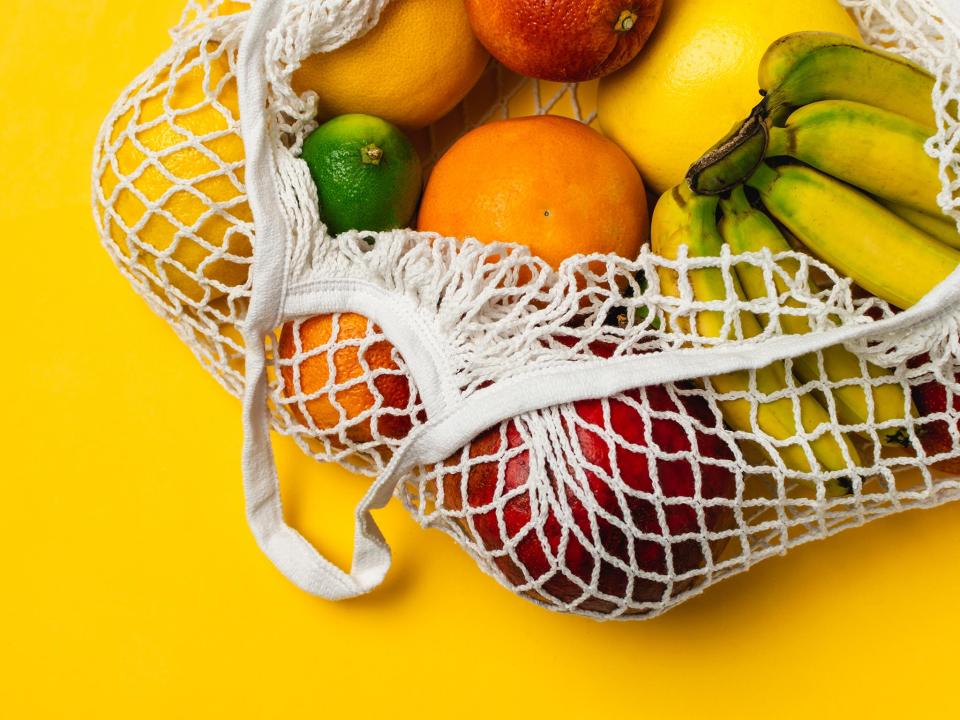Could this zero-waste shopping service be the solution to end single-use plastic?

Versatile, affordable, and ever-present, plastic has been essential in keeping hospitals running, while also protecting key workers and the public during the pandemic. As such, progress in avoiding single-use plastic has inevitably stalled – not least because of increased use of disposable masks, gloves, visors, and disposable wipes. But, amid fears of contamination, recycling collections have been cut back, disposable coffee cups became the norm, and the charge on plastic bags has been suspended.
All is not lost, though, because I think I’ve just found the solution we so desperately need. Enter Loop – the UK’s first online shopping service to deliver food, drinks and household essentials in reusable packaging directly to your door. A gamechanger.
Already established in France and the US, with plans to expand to Japan, Canada, and Australia next year, Tesco has partnered with Loop in one of the most ambitious attempts I’ve seen to encourage people to reduce their plastic consumption and opt for reusable, zero-waste alternatives.
The process simple. Place your order online for the goods you would ordinarily buy in single-use plastic packaging – everything from hand wash, toothpaste and deodorant to drinks, sauces, and yoghurt – and pay a small deposit on each piece of packaging which is refunded once the empty item is returned.
While it remains in its infancy, there are currently over 160 products from 35 major brands on offer, with more to be added soon. Brands include Heinz and Coca Cola, as well as Nivea, Molton Brown and REN Clean Skincare.
A post shared by Loop UK (@loopstoreuk) on Jul 16, 2020 at 6:22am PDT
Orders are delivered by a DPD courier in a reusable container. And once you’ve finished the products, schedule a pick-up of empty containers, which can be combined with your next delivery, or drop them off at one of the 2,500 DPD collection points across the UK.
Packaging is sorted and professionally cleaned by food and hygiene safety firm Ecolab to stringent health and safety standards so containers can be refilled and reused by the manufacturer up to 100 times.
Environmental campaign groups have welcomed the move. Chief executive of WWF (the world’s leading independent conservation non-profit), Tanya Steele said: “There needs to be a cultural shift, from a society that is reliant on disposable products and packaging, to one that embraces a circular model”.
A number of conglomerates are also making moves towards more environmentally friendly packaging. Diageo, for example, is set to trial a paper whisky bottle in spring 2021. Made from pressurised pulp, which will be cured in microwave ovens. While many paper cartons are coated with plastic, making them infamously difficult to recycle – takeaway coffee cups, for example – Diageo has said its bottles will not use this coating.
Similarly, supermarkets across the country have been piloting reuse and refill schemes after concerns about the environmental impact of packaging. Waitrose last year trailed its “Unpacked” initiative – a “bring your own” container scheme. Encouraging customers to buy and refill produce, selling items such as dried products, pick and mix frozen section, coffee, wine and beer refills. Prices are also roughly 15 per cent cheaper in the refill section compared to packaged alternatives so as to promote more eco-friendly choices. Despite demand, Waitrose has only rolled the scheme out in Oxford, Cheltenham, Abingdon and Wallingford.
While lots of supermarkets do sell loose fruit and veg, Ariana Densham, an oceans campaigner for Greenpeace UK told The Independent that the top ten supermarkets in the UK produce 810,000 tonnes of throwaway packaging each year.
This proves how much we desperately a reuse and refill culture is needed. And this is the void I hope Loop will fill for us all.
Read more
Coronavirus has put my war against single-use plastic on hold
Missing milk: what the zero waste influencers don't tell you

